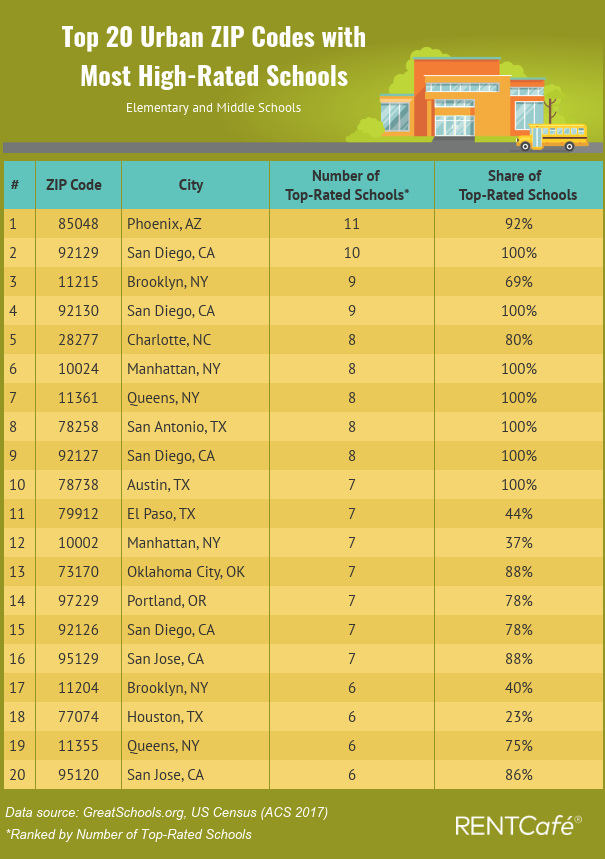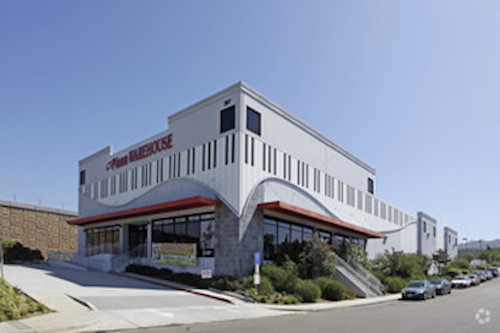Daily Business Report-July 15, 2019
Comic-Con attracts attendees from over 80 countries and more than 2,500 media personnel from over 30 countries. (Courtesy San Diego Convention Center Corp.)
Comic-Con 2019:
The spotlight is on San Diego
The 50th annual Comic-Con is here and the event is expected to bring an estimated 135,000 attendees into the San Diego Convention Center. This makes Comic-Con the San Diego Convention Center’s largest annual attended event.
This year’s Comic-Con will run from Thursday, July 18 through Sunday, July 21, with preview night being held on Wednesday, July 17.
Comic-Con attracts attendees from over 80 countries and more than 2,500 media personnel from over 30 countries, putting San Diego at the center of an international spotlight. Comic-Con guests are expected to generate an estimated $149 million in regional impact to San Diego, with a direct attendee spend of $88 million.

_______________________

Best ZIP codes for renters
looking for top-rated urban schools
Living near a top-rated school in San Diego is 6 percent cheaper than it would be in areas without top schools, according to a report byRENTCafé.com.
With 38 percent of its schools rated 8+, San Diego ranks 1st in the nation by share of top-rated schools and also is home to the 2nd highest number of top-rated schools (88), right behind New York City.
San Diego is 2nd in the nation in terms of the most top-rated schools in a ZIP code, 10 in ZIP code 92129. Following close behind is another San Diego ZIP code, 92130 with 9 highly-rated schools, which landed 4th. In fact, of the 30 cities in the RENTCafé.comanalysis, San Diego is the only one which took 4 spots in the list of the top 20 ZIP codes with the most high-rated schools.
Which ZIP codes offer the best deals for renting near top schools? Rents in ZIP code 92119 are on average $598 cheaper than in areas without top-rated schools. In ZIP codes 92111 and 92117, renting families looking for a top-rated school would be able to save $521/month and $501/month respectively.
_______________________

San Marcos industrial building sells for $3.9 million
An 18,452-square-foot industrial building at 307 E. Carmel St. in San Marcos has sold for $3.9 million. The buyer was identified only as 307 E Carmel LLC. The seller was the James 2002 Revocable Trust.
The building features 30 percent showroom, 30 percent office and 40 percent warehouse space with freeway frontage directly on Highway 78.
The property, formerly occupied by SoCal Piano, was purchased by an investor who leased the facility to Chefs Toys LLC under undisclosed lease terms.
“This property was appealing to our client because of its irreplaceable freeway visible location combined with its unique hybrid industrial/retail features,” said Marko Dragovic who, with Jim Snyder of Lee & Associates, represented the buyer. Seller was represented by Colliers International.
_______________________
David Pruitt Named interim CEO, ambassador
of California Cut Flower Commission

David L. Pruitt, a horticulture consultant and former flower farmer, has been named the interim CEO and ambassador of the California Cut Flower Commission (CCFC) by the organization’s board of commissioners. Pruitt, a past chair and one of the founders of CCFC, will take the helm on July 15.
For the past five years, Pruitt has represented International Horticultural Technologies in business development, sales and technical support. He was previously the general manager of Ball Tagawa Growers, and spent 25 years as a flower farmer and owner of Sea Coast Greenhouses in San Diego County.
He currently serves on the board of the Kee Kitiyama Research Foundation, the Central Coast Greenhouse Growers Association and the Agriculture Liaison Advisory Board that advises the San Luis Obispo County Board of Supervisors, along with a host of other volunteer roles in the agriculture and cut flower industries. He’s also served on the Growers Council and Membership Committee for the Society of American Florists, and is a past member of the Cal Poly Advisory Council for Horticulture and Row Crops.
During his time as a flower farmer, Pruitt helped establish the San Diego Flower Auction and served on its board of directors.
_______________________
Guest Commentary
Plastic recycling bill would amount to a new water tax
By Chris Ising

People in Paradise lost their homes and most of their town, and then came more shocking news: Paradise’s water is contaminated with benzene, which is known to cause cancer.
Intense heat from the fires created a combination of gases that were ultimately sucked into water pipes. The contamination is widespread, and experts say it will take up to two years before residents can drink, cook, brush their teeth, or bathe with the tap water in that region.
No one was prepared for the breadth or scale of the contamination.
Watching my friends who lost everything in the Paradise fire was devastating. But watching the community come together and help each other – each in their own way – was heartwarming. My company donated 5,000 single serve bottles of water to help do our part for the victims.
The community will have no choice but to rely on bottled water as the primary source for safe drinking water for the foreseeable future, and officials and bottled water companies have been distributing supplies to residents for months.
Now there is legislation that will likely cause an increase in the cost of bottled water at precisely a time when these communities are trying to rebuild.
Assembly Bill 792 by Assemblyman Phil Ting of San Francisco would require plastic beverage containers in California to be made with at least 25% recycled content material by 2021, 50% by 2025, and 75% by 2030.
The bill’s mandates apply to those same water bottles and jugs that many people living in and returning to communities like Paradise desperately need.
Assemblyman Ting’s intentions are certainly good but he’s asking for too much, too soon. The measure wouldl force up prices on products that communities like Paradise need, literally, to survive.
The truth is there is not enough recycled PET (polyethylene terephthalate) and HDPE (high-density polyethylene) plastic material in the U.S. market, let alone in California, to meet the unreasonable materials demand the bill would require. In fact, there is barely enough recycled material available for current users and current demand.
If we exponentially increase the use of, and demand for, recycled plastic by producers and in the timeline the bill proposes, the lack of supply will drive up prices on recycled plastic – meaning prices on bottled water will also increase.
And if companies can’t get enough recycled material, they will not be able to sell their bottled water in California, which would reduce the availability of this much needed product.
Bottled water companies support mandatory recycled content requirements. Many of these companies have led the way in environmental sustainability by using packaging that is 100% recyclable; introducing thinner, lighter bottles; and voluntarily using recycled PET and HDPE plastic in our products.
However, we believe any recycled content standards and effective dates must be realistic and reasonable – and market-based. There are smarter and more effective options, and we’re committed to working with legislators to pursue them.
Above all, we must be mindful of those who need bottled water, particularly those who have no other options. Citizens living in areas like Paradise can’t afford higher costs caused by unreasonable mandates.
Chris Ising is a cattle rancher who owns of Ising Culligan Water Service in Livermore, chrisi@isingsculligan.com. He wrote this commentary for CalMatters.



